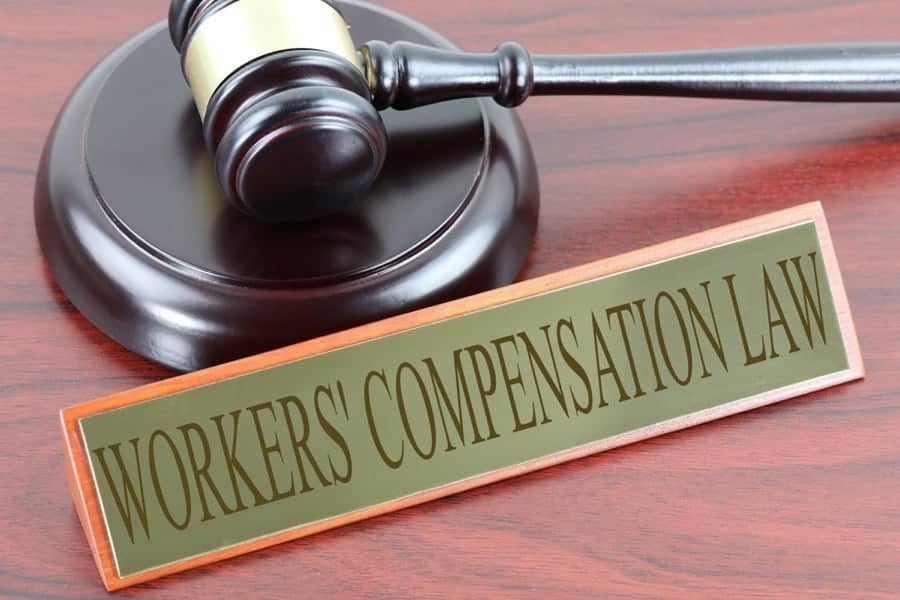Attorney advertisement by Edwin Aiwazian of Lawyers for Justice, PC, headquartered at 450 N Brand Blvd, Glendale, CA 91203
Answers to common questions about workers’ compensation and your rights at work
When an employee is injured or becomes ill because of their job, they may be entitled to workers’ compensation benefits. These benefits help cover medical care, wage replacement, and other costs associated with recovery.
At Lawyers for Justice, PC (LFJ), our team has helped countless employees navigate the workers’ compensation process and better understand their rights. Whether you’ve suffered a workplace injury, repetitive strain, or illness, our workers compensation attorneys can help you understand what options may be available.
Below are answers to the most frequently asked questions about workers’ compensation laws, eligibility, and benefits.
What is workers’ compensation?
Workers’ compensation is an insurance program that provides wage and medical benefits to employees who are injured or become ill due to their job. It’s designed to protect both employees and employers — offering support for recovery while minimizing legal disputes.
Who is eligible for workers’ compensation?
Most employees are covered from their first day of employment, as long as their injury or illness is work-related. This includes:
- Accidents or unsafe working conditions (slips, machinery, etc.)
- Repetitive stress injuries (like carpal tunnel syndrome)
- Illnesses from chemical or toxic exposure
- Hearing or vision loss connected to the job
- Chronic illness or long-term occupational diseases
Independent contractors and freelancers are typically not eligible for workers’ compensation benefits, though there are exceptions depending on state law.
What does workers’ compensation cover?
It may cover:
- Medical treatment and ongoing care
- Temporary or permanent disability benefits
- Lost wages while recovering
- Vocational rehabilitation or job retraining
- Death benefits to dependents if a work-related injury or illness is fatal
What does workers’ compensation not cover?
Workers’ compensation typically does not cover:
- Injuries sustained outside of work
- Self-inflicted injuries
- Misconduct or intoxication-related incidents
- Stress or anxiety not directly tied to workplace events
For more insight, read our related post: Can I Sue My Employer for Stress and Anxiety?
Can I sue my employer if I receive workers’ compensation?
Generally, employees cannot sue their employer for workplace injuries once they’ve accepted workers’ compensation benefits. However, if a third party (such as a subcontractor, manufacturer, or negligent driver) caused the injury, a separate legal claim might be possible.
Can I continue working while receiving workers’ compensation benefits?
In some cases, yes. Employees can sometimes perform “light duty” or modified work, depending on medical clearance and employer policy. Always consult with your doctor before resuming work duties.
Can an employer deny a workers’ compensation claim?
Yes. Employers or insurance companies may deny claims for various reasons, including missed deadlines, incomplete paperwork, or questions about whether the injury was job-related. An experienced workers compensation lawyer can help you appeal a denied claim.
How long do I have to file a workers’ compensation claim?
Filing deadlines vary by state, but it’s best to report your injury immediately and file your claim as soon as possible. Waiting too long could affect your eligibility for benefits or delay your claim processing.
How are workers’ compensation benefits calculated?
Benefit amounts are typically based on a percentage of your average weekly wage prior to the injury, as well as the severity and classification of your disability (temporary or permanent). Each state uses its own calculation formula.
Do I need a workers’ compensation attorney?
While it’s not legally required to have an attorney, many workers find it helpful. A work comp attorney can:
- Ensure all forms are filed correctly and on time
- Gather evidence and documentation
- Communicate with insurance companies
- Represent you if your claim is denied or disputed
What happens if my employer doesn’t have workers’ compensation insurance?
Most states require employers to carry workers’ compensation insurance. If your employer does not, you may still have legal options to pursue compensation for your medical bills and lost wages.
Does workers’ compensation cover mental health or stress injuries?
In some cases, yes — but it depends on state laws and whether the mental health condition was caused by a specific workplace incident. Some states allow claims for “psychiatric injuries” or “mental stress,” while others limit coverage.
Can I receive workers’ compensation for repetitive motion injuries?
Yes. Repetitive strain injuries (like back pain, tendonitis, or carpal tunnel) that develop over time from job duties can often be covered under workers’ compensation. Documentation from a medical professional is usually
Get Help from Lawyers For Justice, P.C. Work Comp Attorneys
The employment law attorneys at Lawyers for Justice, P.C. (LFJ) have a strong track record of delivering incredible results for clients, especially when it comes to workers’ compensation benefits.
Lawyers for Justice, P.C. employment lawyers not only help clients with filing a workers’ compensation claim, obtaining permanent disability benefits, temporary disability benefits, and overall workers’ compensation benefits issues, but they do so in a way that makes California workers feel comfortable and secure in their workers’ compensation claims.
Attorney advertisement by Edwin Aiwazian of Lawyers for Justice, PC, headquartered at 450 N Brand Blvd, Glendale, CA 91203
Think you deserve justice?
-
Get a Free Case Evaluation
-
Retain Service with No Upfront Cost
-
Get the Justice You Deserve
-
No Win, No Pay









